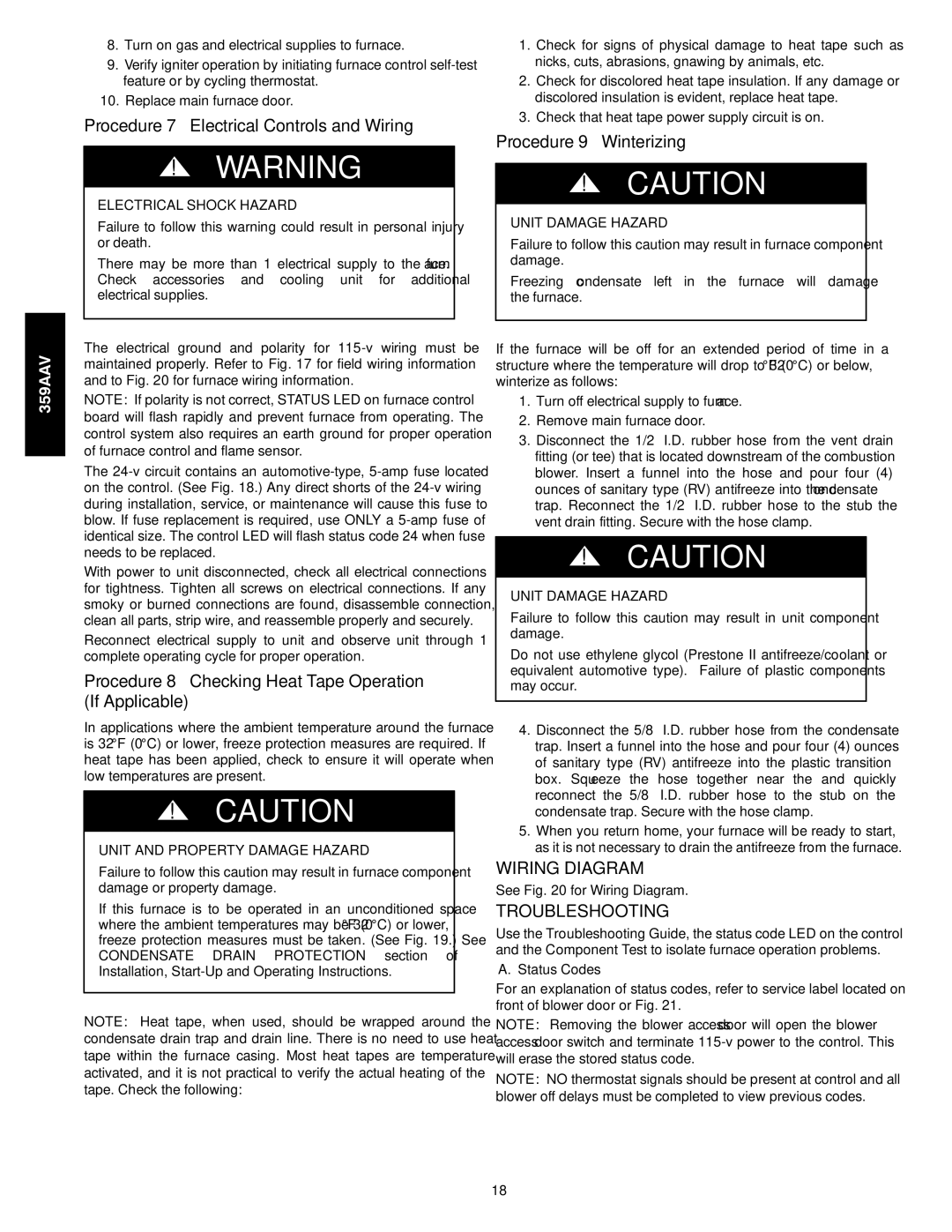359AAV specifications
The Bryant 359AAV is a cutting-edge heating and cooling solution designed to deliver exceptional comfort, energy efficiency, and reliability for residential applications. With its innovative advancements and superior engineering, the Bryant 359AAV stands out in the competitive HVAC market.One of the main features of the Bryant 359AAV is its two-stage heating and cooling system. This allows the unit to operate at two different levels of capacity, ensuring more consistent temperatures throughout your home. By running at a lower capacity most of the time, it can achieve greater energy efficiency compared to single-stage systems, and only ramps up to full power when there's a significant demand for heating or cooling. This results in improved comfort and lower energy bills.
Equipped with a variable-speed compressor, the Bryant 359AAV can adjust its speed to match the specific heating or cooling needs of your home. This feature not only enhances the system's efficiency but also reduces noise levels, making it one of the quietest units in its class. The advanced sound-dampening technology minimizes operational sounds, allowing homeowners to enjoy a peaceful indoor environment.
The Bryant 359AAV also features a high SEER (Seasonal Energy Efficiency Ratio) rating. This rating is crucial for determining the unit's efficiency during the cooling season. A higher SEER rating means that the unit consumes less energy for the same amount of cooling output, which helps in lowering utilities. This is particularly beneficial for homeowners looking to reduce their overall energy consumption and carbon footprint.
Another significant characteristic of the Bryant 359AAV is its advanced indoor air quality options. The system can be equipped with filters and purifiers to ensure that the air circulating in your home is clean and healthy. Enhanced filtration helps in capturing allergens, pollutants, and other harmful particles, improving the overall air quality.
Overall, the Bryant 359AAV is characterized by its durability and modern design. Built with high-quality materials, it is designed to withstand harsh weather conditions and provide reliable service for years. The unit’s compact footprint allows for versatile installation options, making it suitable for various home layouts. With optimal performance, impressive energy savings, and a focus on indoor air quality, the Bryant 359AAV is an excellent choice for homeowners seeking an efficient and effective HVAC solution.

